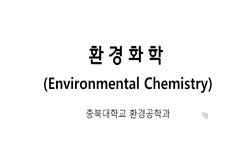One-step conversions of CO_2 into olefins were investigated over conventional Fischer-Tropsch synthesis(FTS) catalyst and the new hybrid catalysts. The hybird catalyst was consisted of methanol synthesis catalyst(Cu/ZnO/Al_2O_3, Cu/ZnO/ZrO_3) and meth...
http://chineseinput.net/에서 pinyin(병음)방식으로 중국어를 변환할 수 있습니다.
변환된 중국어를 복사하여 사용하시면 됩니다.
- 中文 을 입력하시려면 zhongwen을 입력하시고 space를누르시면됩니다.
- 北京 을 입력하시려면 beijing을 입력하시고 space를 누르시면 됩니다.


공업화학, 촉매/반응공학 : 이산화탄소로부터 올레핀 합성을 위한 혼성 촉매와 Fischer-Tropsch 합성 촉매의 비교 연구 = Industrial Chemistry, Catalysis/Reaction Engineering : Comparative Studies on Catalytic Conversion of CO2 into Olefin with Hybrid Catalysts and Fischer-Tropsch Synthesis Catalysts
한글로보기https://www.riss.kr/link?id=A30071667
- 저자
- 발행기관
- 학술지명
- 권호사항
-
발행연도
2003
-
작성언어
-
- 주제어
-
KDC
500
-
등재정보
SCOPUS,KCI등재,ESCI
-
자료형태
학술저널
- 발행기관 URL
-
수록면
33-40(8쪽)
-
KCI 피인용횟수
0
- 제공처
- 소장기관
-
0
상세조회 -
0
다운로드
부가정보
다국어 초록 (Multilingual Abstract)
One-step conversions of CO_2 into olefins were investigated over conventional Fischer-Tropsch synthesis(FTS) catalyst and the new hybrid catalysts. The hybird catalyst was consisted of methanol synthesis catalyst(Cu/ZnO/Al_2O_3, Cu/ZnO/ZrO_3) and methanol to olefin(MTO) catalyst(Mg-La/ZSM-5). The activity of hybrid catalytic system, which was mixed with Cu/ZnO/Al_2O_3(6:3:1 in weight ratio) and Mg-La/ZSM-5, was superior than others in terms of CO_2 conversion and total hydrocarbon yield, but olefin was not produced significantly. The reason was supposed to be caused by Cu-support interaction, which gives rise to the loss of strong Bro¨nsted acid site and consequently the medium strength acid site production. In contrary to hybrid system, the modified F-T catalytic system showed similar enhanced CO_2 conversion. However, it showed high selectivity to olefin. When ZSM-5 was used as a support for FE-K catalyst system, the selectivity of olefin was found to be increased. The addition of potassium promoters give rise to increase amount of CO_2 uptake on the surface, and the improvement of stability in adsorbed Fe-C species. Consequently, by carefully selecting the support and additives on modified F-T catalyst system, it was possible to obtain the high CO_2 hydrogenation activity as well as high olefin selectivity.
동일학술지(권/호) 다른 논문
-
- 한국화학공학회
- 유필진 ( Pil Jin Yoo )
- 2003
- SCOPUS,KCI등재,ESCI
-
공업화학, 촉매/반응공학 : XPS와 AFM에 의한 올리고펩타이드의 자기 집합화 단분자막 분석
- 한국화학공학회
- 송성훈 ( Seong Hun Song )
- 2003
- SCOPUS,KCI등재,ESCI
-
공업화학, 촉매/반응공학 : 니켈촉매를 이용한 메탄의 부분산화에 의한 합성가스 제조
- 한국화학공학회
- 김상범 ( Sang Bum Kim )
- 2003
- SCOPUS,KCI등재,ESCI
-
공업화학, 촉매/반응공학 : 아임계 및 초임계수하의 p-Xylene 의 무촉매 부분 산화반응에서 반응조건이 Terephthalic acid 의 선택성에 미치는 영향
- 한국화학공학회
- 김영래 ( Young Lae Kim )
- 2003
- SCOPUS,KCI등재,ESCI
분석정보
인용정보 인용지수 설명보기
학술지 이력
| 연월일 | 이력구분 | 이력상세 | 등재구분 |
|---|---|---|---|
| 2023 | 평가예정 | 해외DB학술지평가 신청대상 (해외등재 학술지 평가) | |
| 2020-01-01 | 평가 | 등재학술지 유지 (해외등재 학술지 평가) |  |
| 2013-01-01 | 평가 | 등재 1차 FAIL (등재유지) |  |
| 2010-12-02 | 학술지명변경 | 한글명 : 화학공학 -> Korean Chemical Engineering Research(HWAHAK KONGHAK) |  |
| 2010-01-01 | 평가 | 등재학술지 유지 (등재유지) |  |
| 2009-08-25 | 학술지명변경 | 외국어명 : Korean Chem. Eng. Res. -> Korean Chemical Engineering Research |  |
| 2008-01-01 | 평가 | 등재학술지 유지 (등재유지) |  |
| 2007-09-27 | 학회명변경 | 영문명 : The Korean Institute Of Chemical Engineers -> The Korean Institute of Chemical Engineers |  |
| 2006-01-01 | 평가 | 등재학술지 유지 (등재유지) |  |
| 2004-01-01 | 평가 | 등재학술지 유지 (등재유지) |  |
| 2001-07-01 | 평가 | 등재학술지 선정 (등재후보2차) |  |
| 1999-01-01 | 평가 | 등재후보학술지 선정 (신규평가) |  |
학술지 인용정보
| 기준연도 | WOS-KCI 통합IF(2년) | KCIF(2년) | KCIF(3년) |
|---|---|---|---|
| 2016 | 0.43 | 0.43 | 0.4 |
| KCIF(4년) | KCIF(5년) | 중심성지수(3년) | 즉시성지수 |
| 0.37 | 0.35 | 0.496 | 0.11 |




 KISS
KISS







